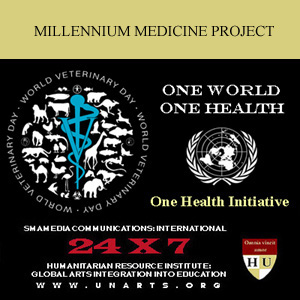
Website: http://www.unarts.org/mmp
Music: http://airplaydirect.com/music/stephenmichaelapatow/
When I started the development of this project, the mission seemed clear, expand the ability of the physicians to care for the people in need. Then the issue of profit vs the mission to care for the sick came into focus, and the task was deemed "impossible." Unfortunately, I didn't know what that word meant.... Sometimes you just have to move ahead and do what's right -- H-II - Stephen Michael Apatow, United Nations Arts Initiative.
3.5 billion people live in severe poverty, 2.4 billion people lack access to basic sanitation and over 1 billion people lack access to safe drinking water.... Each day in the developing world, 30,000 children die from mostly preventable and treatable causes such as diarrhea, acute respiratory infections or malaria. [1]
In the context of the worlds most wealthy countries, according to the "World Vision responds to G20 Communiqué" [2]:
-- While G20 leaders have been focused on finding concrete solutions to economic challenges, almost 14,000 children in their own countries will have died, mostly from preventable causes.
-- These countries are now the 21st century's economic powerhouses, with 87 per cent of the world's GDP, yet many are still failing to address dire living conditions and lack of access to health services in their communities.
The World Health Organization Global Initiative for Emergency and Essential Surgical Care (GIEESC) was established in December 2005 as an international collaboration of Ministries of Health, WHO country offices, local and international organizations and academia. GIEESC is involved in reducing death and disability from road traffic accidents, trauma, burns, falls, pregnancy related complications, domestic violence, disasters and other surgical conditions. The specific objectives are:
-- strengthen capacity to deliver effective emergency surgical care at the first referral level facility, working towards achieving the WHO Millennium Development Goals
-- improve the quality of care through safe and appropriate use of emergency and essential surgical procedures and linked equipment in resource limited healthcare facilities
-- strengthen existing training and education programs in safety of essential procedures in low and middle income countries
Today, despite the formation of GIEESC in 2005, 5 Billion people across the globe lack access to basic surgical services and advanced medical technologies.
Even after half a century of independence, "not more than 20 percent of the population has any access to..... basic surgical services like life saving caesarian section, or a life saving repair of typhoid perforation..." (National Human Development Report 2001). This situation can be improved only if there is adequate number of rural surgeons in India whose surgery is affordable and available near the homes of the patients. -- Realising the vital role of rural surgeons in the nation's health care, Dr. Gazeiry, MD., FRCS., the past Regional Director of W.H.O. East Mediterranean Region remarked that rural surgery be made into a specialty.
The concept of rural surgery has been developed in India in the last thirteen years to make modern surgical care accessible to the five billion havenots of the developing world. Only one billion out the total of six billion population of the world has any access to the type of surgical care seen in the hospital of Western Europe and America. In India, out of the population of one billion as of today, not more than 10% has any access to this type of surgical care. -- Association of Rural Surgeons in India. [3]
Strategic Planning and Development
The focus of the HRI:UNArts - Millennium Medicine Project is G-192 unmet needs analysis that includes (1) review of countries and emergencies [4], (2) demographic and public health infrastructure, and operational needs on the rural healthcare level. This information will serve as our basis for strategic planning, NGO integrational support, education initiatives and international appeals.
Access points for low cost medical equipment and supplies for humanitarian operations at the rural clinic level is a priority focus [5] Current discussions include access to:
-- Low cost diagnostics technologies (including PCR) to assist with surveillance, containment and control of high consequence pathogens. [7]
-- Ultrasound Technologies that include Low-Cost USB-based Ultrasound Probes and Ultrasound imaging and training for FAST (Focused Assessment with Sonography for Trauma), and early diagnosis of developmental dysplasia of the hip (DDH). [6]
-- Low cost access to pharmaceuticals, to address public health challenges classified under the umbrella of an international public health emergency. [8]
-- Low cost JESS/FIX CLIP Technologies: Orthopedic supplies for rural surgeons. [6]
For corporations, physicians, veterinarians, scientists that would like to serve in an advisory or product development role (included in the Millennium Medicine Project medical equipment and supplies portal), contact
Stephen M. Apatow
Millennium Medicine Project
Corporate, NGO, Field Operations Liaison
References:
1. The Ultimate Objective: Humanitarian Resource Institute. Url: http://www.humanitarian.net/interfaith/studycenter/Omnia_vincit_amor
2. World Vision responds to G20 Communiqué: 27 June 2010. Url: http://www.wvi.org/wvi/wviweb.nsf/maindocs/
A52C3000496FA92A882577500003F68D
3. Association of Rural Surgeons in India. Url: http://www.arsi-india.org/
4. Reliefweb: Countries and Emergencies. Url: http://www.reliefweb.int/rw/dbc.nsf/doc401?OpenForm
5. 42 Extremely Affordable Global Health Innovations: Global Health Ideas. http://globalhealthideas.org/2009/07/42-extremely-affordable-global-health-innovations
6. Orthopedics: Millennium Medicine Project, 6 July 2010. Url: http://www.unarts.org/mmp/orthopedics_762010.html
7. Public Health Infrastructure and Emerging Infectious Diseases: Millennium Medicine Project, 6 July 2010. Url: http://www.unarts.org/mmp/eid_762010.html
8. Declaration/Scope - International Public Health Emergency: Pathobiologics International, Nov. 2006. Url: http://www.pathobiologics.org/btac/UNIHR1292007.html




No comments:
Post a Comment